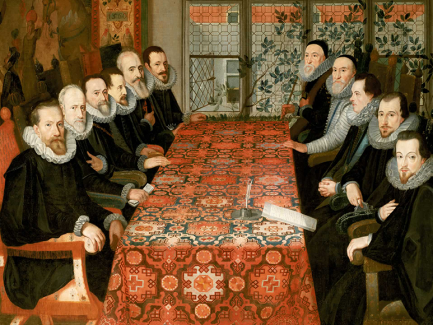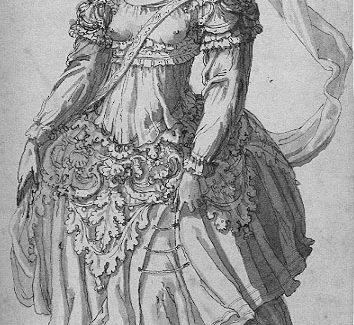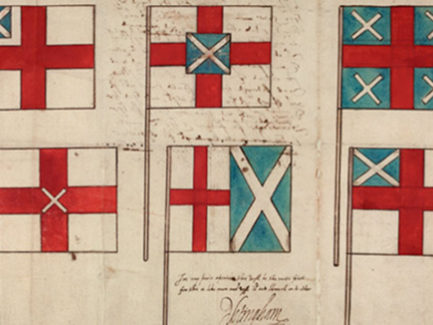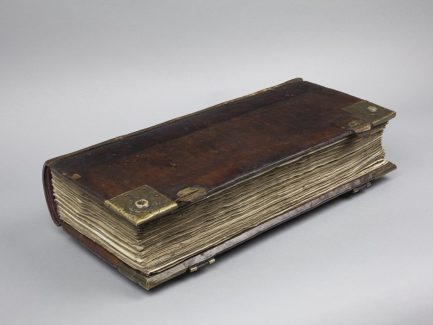How did Elizabethan sumptuary laws affect Shakespeare’s playing company?
Costumes were an important and expensive investment made by playing companies in Shakespeare’s day. Accounts kept by Philip Henslowe at the Rose playhouse show that Henslowe once paid £20 10s 6d for a black velvet cloak with gold and silver embroidery on the sleeves. This amount was almost three times the cost of a script and shows the value placed on costumes. Such expensive clothing was well looked after during performances as well as afterwards. Henslowe stipulated in a contract with the actor Robert Dawes that he was not allowed to wear any of the costumes ‘at any time after the play’, or to go out ‘with any apparel on his body’. Dawes was liable to be charged £40 if he was found wearing the company’s costumes outside the playhouse.
Henslowe also sold costumes to players, including a man’s gown of peach colour in grain’ which he sold to Mr Richard James on 2 September 1594 at the price of 5s a week for twelve weeks. On 27 August 1595, Henslowe sold to James Donstall ‘a man’s gown of purple colour cloth faced with coney [rabbit fur] and laid on the sleeves with buttons for 43 s 4 d to be paid 20s in hand and 23s 4d at Michaelmas next coming after the date above written, I say for: 43s 4d’.
Sumptuary laws not only regulated clothing, class divisions and personal spending, they also accounted for the elaborate costumes used in the early modern playhouses. It was because of sumptuary laws that playing companies such as the Lord Chamberlain’s Men benefitted from gifts of lavish clothing which could be used for costumes. Thomas Platter, when he visited London in 1599, noted that ‘eminent lords or knights’ bequeathed ‘the best of their clothes to their serving men’, and furthermore that these serving men sold them ‘for a small sum to the actors’ because it was ‘unseemly for the latter to wear them’. Ben Jonson dramatized this tradition in The New Inn when Lady Frampul gives some of her old clothes to her maid, Prudence, and suggests that she give them to the players if she needs some extra money:
LADY FRAMPUL
When thou has done with it, and yield thee somewhat.
PRUDENCE
That were illiberal, madam, and mere sordid
In me, to let a suit of yours come there.
LADY FRAMPUL
Tut, all are players, and but serve the scene.
(Act 2 Scene 1)
© 2018 Shakespeare’s World
To read more about this topic and other events on this day in Shakespeare’s lifetime, you can see our recommendations for further reading and visit our website to buy Shakespeare’s World App or to follow us on social media.










































